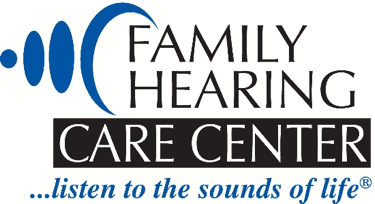
Enhancing Relationships Through the Power of Hearing: The Transformative Benefits of Treating Hearing Loss
As leading audiologists dedicated to improving the lives of individuals with hearing impairment, we are compelled to share insights into the profound impact treating hearing loss can have on relationships. Over the years, the field of audiology has witnessed remarkable advancements in prevention, diagnosis, and management of hearing loss, paving the way for enriched connections, enhanced communication, and improved emotional well-being.
The Ripple Effect of Hearing Loss on Relationships
Hearing is more than just a sense; it’s a vital aspect of human connection. Our ability to communicate and bond with others is deeply intertwined with our capacity to hear and understand. When hearing loss goes untreated, the ripple effect on relationships can be significant. Strained communication, misinterpretations, and feelings of isolation can gradually erode the fabric of interpersonal connections, affecting relationships with family, friends, and colleagues.
Early Detection: A Crucial Step
One of the cornerstones of effective hearing loss management is early detection. Research consistently underscores the importance of identifying hearing loss in its nascent stages. The sooner hearing loss is diagnosed, the more successful interventions can be in preserving and improving both hearing capabilities and relationships.
Revolutionizing Diagnosis and Intervention
Advancements in technology have revolutionized the field of audiology, providing innovative tools for diagnosing and managing hearing loss. Audiologists now employ sophisticated diagnostic techniques, such as comprehensive hearing assessments and speech-in-noise testing, to pinpoint the extent and nature of hearing impairment. These insights enable tailored interventions that suit individual needs and lifestyles.
Invisible Solutions: The Rise of Discreet Hearing Aids
One of the most remarkable trends in recent years is the development of discreet and technologically advanced hearing aids. Modern hearing aids are designed to seamlessly integrate into daily life, offering not only improved hearing but also enhanced comfort and aesthetics. These devices employ cutting-edge features like Bluetooth connectivity, adaptive noise reduction, and personalized sound profiles to optimize communication experiences.
Cochlear Implants: A Glimpse into the Future
While hearing aids have transformed the lives of countless individuals, cochlear implants are a beacon of hope for those with severe to profound hearing loss. These remarkable devices bypass damaged portions of the inner ear to directly stimulate the auditory nerve, providing a sense of sound to individuals who were previously unable to hear. Ongoing research is focused on refining implant technology and expanding candidacy criteria, potentially making these interventions even more accessible and effective.
The Emotional Dimension: Psychological Well-being
Treating hearing loss is not just about restoring auditory function; it’s also about nurturing emotional well-being. Recent research highlights the close relationship between hearing loss and conditions like depression, anxiety, and cognitive decline. By addressing hearing loss, we not only improve communication but also alleviate the emotional burden that often accompanies untreated impairment, fostering healthier relationships and greater overall life satisfaction.
Empowering Communication Strategies
Beyond technological interventions, audiologists also play a pivotal role in empowering individuals and their loved ones with effective communication strategies. These strategies encompass active listening techniques, visual cues, and environmental modifications that facilitate smoother interactions. By equipping individuals with the tools to navigate challenging listening environments, audiologists empower them to actively participate in conversations and engagements, fostering stronger connections.
The Compassionate Approach: Personalized Care
In the realm of hearing health, compassion and empathy are as essential as technological expertise. Recognizing the unique journey each individual undertakes when addressing hearing loss, audiologists strive to provide personalized care that considers emotional, lifestyle, and medical factors. A holistic approach ensures that treatment plans not only enhance hearing but also enrich relationships and overall quality of life.
In conclusion, the journey toward treating hearing loss is not just a medical one; it’s a journey toward deeper, more meaningful connections with those we cherish. From the remarkable strides in diagnostic accuracy to the futuristic promise of cochlear implants, the field of audiology continues to evolve in ways that hold tremendous potential for transforming relationships. As leading audiologists, our commitment lies in harnessing these advancements to help individuals rediscover the joy of unimpeded communication, fostering bonds that are enduring, authentic, and fulfilling. If you or a loved one suspect a hearing impairment, remember that seeking early intervention can be the first step toward a world of improved relationships and enhanced emotional well-being.
